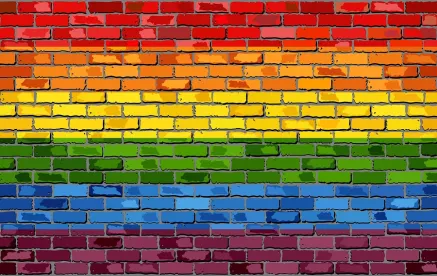Nearly one-third of transgender individuals experience homelessness at some point in their life, and 70% of those who have stayed in a homeless shelter have reported some form of mistreatment, including harassment and refusal of service, due to their gender identity. Transgender individuals are significantly more likely to end up homeless than the general population because they often face rejection by their family members and discrimination in employment and housing. The levels of discrimination and income inequality are even higher for transgender women of color, and the COVID-19 pandemic has further exacerbated the rates of unemployment, poverty, and homelessness among the transgender population.
On September 22, 2020, pro bono attorneys filed a public comment letter on behalf of The National LGBT Bar Association and Foundation urging the withdrawal of a Proposed Rule issued by the U.S. Department of Housing and Urban Development (HUD) that would severely harm homeless transgender, intersex, and gender nonconforming individuals by allowing federally funded homeless shelters to discriminate against them on the basis of their gender identity. The Proposed Rule would eliminate key non-discrimination protections previously afforded to transgender shelter-seekers under HUD’s 2016 Equal Access Rule and would permit single-sex shelters to turn away transgender, intersex, and gender nonconforming individuals if the shelter operator determines that the individual is not of the same “biological sex” as the other shelter residents.
The Proposed Rule is premised on the medically and legally indefensible presumption that an individual’s sex can be determined solely on the basis of their external physical characteristics. In reality, an individual’s “biological sex” is complex, multi-faceted, and primarily determined not by external physical characteristics, but by an individual’s gender identity—which is sometimes referred to as one’s “brain sex.” The Proposed Rule’s reduction of “biological sex” to physical sex stereotypes such as “height, the presence (but not the absence) of facial hair, the presence of an Adam’s apple, and other physical characteristics,” would not only result in discrimination on the basis of gender identity and transgender status, but would also enable single-sex shelters to arbitrarily provide or deny shelter based solely on a shelter worker’s assessment of whether an individual appears sufficiently “male” or “female” enough to enter. Denying shelter to transgender, intersex, or gender nonconforming individuals on the basis of such physical sex stereotypes constitutes a type of gender discrimination that numerous courts have found unlawful.
HUD’s justifications for the Proposed Rule are rooted not in fact, but in transphobia and harmful gender stereotyping. HUD claims that the Equal Access Rule burdens faith-based shelter providers, but provides no evidence of this. HUD also claims that the Proposed Rule is necessary to protect the privacy and safety of cisgender (that is, non-transgender) shelter residents, again with no evidence that the Equal Access Rule has resulted in any harm to these residents. Rather, HUD posits a hypothetical fear that “non-transgender, biological men” may pretend to be transgender women “to obtain access to women’s shelters” where they will harm cisgender women. In so doing, HUD perpetuates what courts have identified as the “transgender predator myth,” a harmful, false, and unsubstantiated belief that laws protecting the rights of transgender people to access public accommodations such as restrooms will cause cisgender men to pose as transgender women to enter women’s facilities and assault cisgender women.
If enacted, the Proposed Rule will present transgender, intersex, and gender nonconforming individuals with the untenable “choice” of either being placed in a homeless shelter inconsistent with their gender identity or sleeping on the street. Those who opt for shelter at a single-sex facility that does not match their gender identity will be subjected to the psychological trauma of being misgendered and will face the high risk of physical violence that has been documented in various settings in which transgender people have been forced into facilities inconsistent with their gender identities. Those who opt to go unsheltered will also face a serious risk of harm, as studies have found as many as 66% of homeless transgender individuals have experienced a physical assault, and 33% have experienced sexual violence. While a staggering 47% of transgender people report being sexually assaulted during their lifetime, the number climbs to 65% among transgender individuals who have experienced homelessness. These grim statistics are symptomatic of a growing epidemic of violence against transgender individuals, as recent FBI data shows hate crimes against transgender people are on the rise.
We are proud to support The National LGBT Bar Association and Foundation in challenging this Proposed Rule and championing the rights of transgender, intersex, and gender nonconforming people who need access to emergency shelter. HUD must protect homeless transgender individuals, who are among the most vulnerable members of the LGBTQ community, by ensuring that homeless shelters provide them with safe and equal access in accordance with their gender identities.
To read the public comment letter in full, click here.



 />i
/>i

